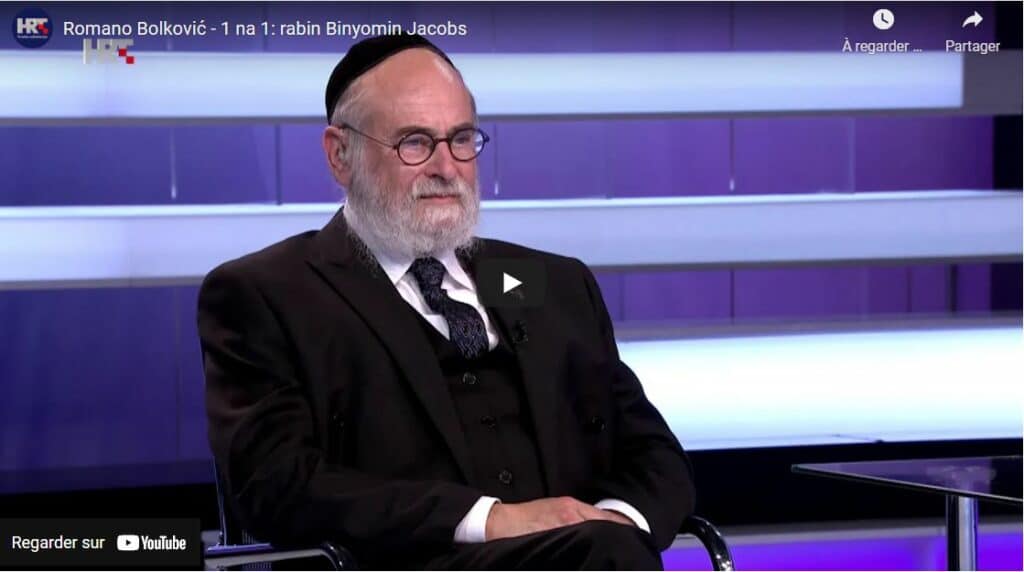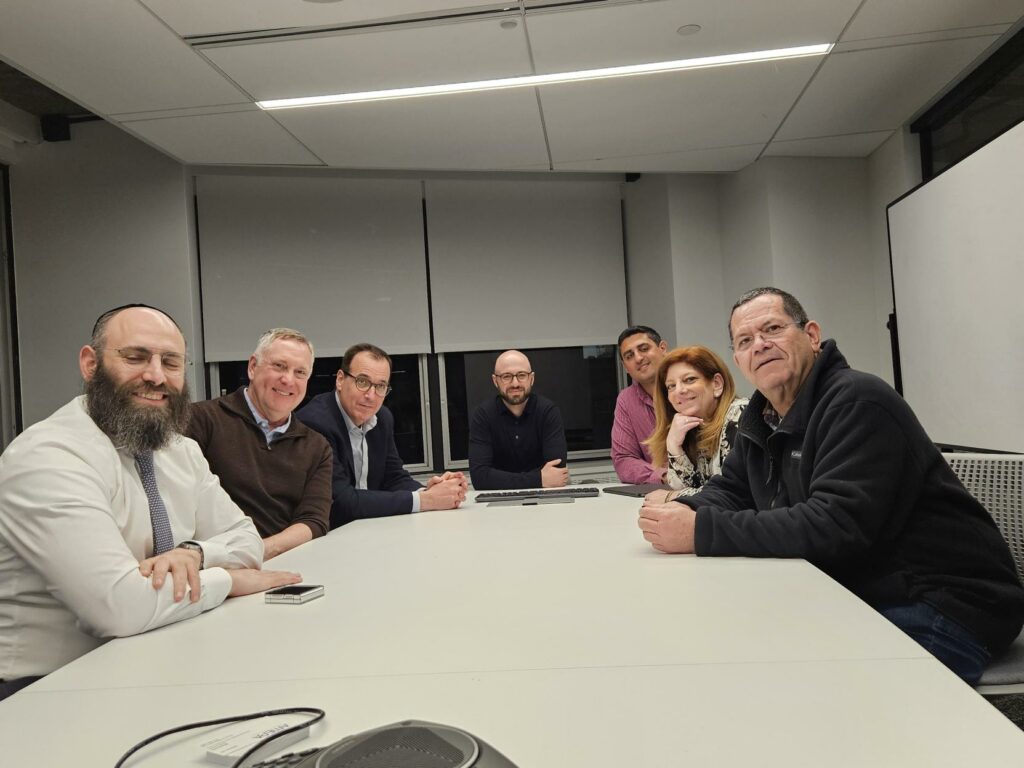
Every Day during the Corona crisis our Advisory Board Member Chief Rabbi Jacobs (NL) writes a diary, on request of the Jewish Cultural Quarter in Amsterdam, which is published on the website of the NIW, the only Jewish Dutch Magazine. Rabbi Jacobs is the head of Inter Governmental Relationships at the Rabbinical Centre of Europe. We will be regularly publishing a selection of his informative, sometimes light hearted, but always wise pieces.
This week in the Torah Portion we cover the story of Noah. Here, the Rabbi offers his unique and refreshing take on the portion. For our Dutch readers you can follow the diary every day at NIW home page: https://niw.nl and then: scroll down.
Noah’s Ark – A Global Lockdown
At 8:10 am, its Shabbat and suddenly the power went out. That is always difficult, but especially on Shabbat because I cannot call a breakdown service (even if the phone would still work).
Water for coffee and tea in the Shabbat kettle was nicely turned on Friday evening before the start of Shabbat, the meal for Shabbat afternoon was simmering in the slow cooker… lighting, freezer and refrigerator, heating ….. Nothing worked anymore.
I went to the electrical box to see if the earth switch was to blame. But even if this had been the case, there was still little I could have done: Shabbat! And then my Reformatorisch Dagblad newspaper popped through the mailbox.
I immediately opened the door and reported my electrical problem to the delivery person.
They immediately understood the problem. “I’ll check what’s going on, because you can’t do that because of Shabbat!” He immediately went into the electrical box, could not find anything out of the ordinary and then went to see if there were also problems elsewhere in the neighborhood.
Five minutes later he was back and told me the whole neighbourhood had no power. At that moment the light came on again. How happy I was with my Reformatorisch Dagblad, which not only brings the newspaper, but also the light!
And so I went with confidence to the synagogue where the beginning of Bereshit was read, including: Then God said, “Let there be light” and there was light! For a moment I felt that the self-evident is not always so self-evident!
Next Shabbat: the story of Noah. Before the outbreak of the flood, Noah was instructed by G-d to go into the Ark. And when it was dry outside he had to leave that Ark again.
Why, the question is asked, should he be ordered to leave the Ark? It was dry anyway! The answer contains an important life lesson. In the Ark there was an atmosphere of real Shalom, similar to the period after the arrival of the Moshiach, so he did not consider leaving the Ark. Why go into the world with all its worries and misery?
But G-d clearly pointed out that isolation from society is wrong. In that world with all its trials, we have the task to serve Him by making a contribution to the society surrounding us, even if closing off would be more pleasant for us personally. So, no Jewish monasteries!
But before the flood began, Noah was instructed to just enter the Ark and shut himself off from that world. Without wanting to compare corona with the Flood, there are times when we, you and I, have to be right in the middle of the world to be ready for others. But there are also periods when we are temporarily not allowed to go outside, social distance. How long do we have to stay in? We do not know.
But just as Noah did not protest and stayed in the Ark when he was required to do so, so too we must stay in, even if we find it difficult. It is too dangerous outside. We should not play with health. This coming Shabbat this will be emphasized extra in all shuls in the world. Noah Had to Enter the Ark: The First Global Lockdown!

PORTO, Portugal — Dozens of European Jewish community leaders convened in the Portuguese city of Porto on Monday for a conference on communal strategies, including lessons from how the city’s local Jews have attracted hundreds of new congregants.
“The leaders of the Jewish community of Porto can be a great example of how just a few individuals who believe in Judaism, in the future of Jewish life, can do magnificent work,” said Rabbi Menachem Margolin, the director of the European Jewish Association, a Brussels-based lobby group that hosted the conference in Porto.
Comprising about 1,000 members, the Jewish community of Porto has tripled in size in recent years, partly thanks to the passage in 2015 of a law that gives Portuguese citizenship to descendants of Jews who were expelled from the country during the Inquisition, which began in Portugal in 1536.
Aided by the boost in membership and by the arrival of hundreds of French-Jewish students at the local university, the community in recent years has augmented its synagogue — which for decades had been its sole possession — with a museum, a kosher meat shop, another synagogue and a Jewish cemetery.

עמית ולדמן | צ׳אט הכתבים
הולנד לאוניברסיטאות: “דווחו על כל קשר בין עובדי אוניברסיטאות לישראל ולארגונים יהודיים”. הרב הראשי של הולנד, בנימין יעקבס, העומד גם בראש הוועדה למאבק באנטישמיות של איגוד הארגונים היהודים באירופה : “מדובר בדרישה המדיפה ריח רע ביותר של אנטישמיות ומזכירה את הדרישה מראשי ערים בהולנד למסור מידע על יהודים לכובשים הגרמנים בזמן השואה”
https://mobile.mako.co.il/news-reporters_chat?messageId=402706&utm_source=SharedChatMessage&utm_medium=Unknown&partner=SharedChatMessage
ע

EJA Chairman Rabbi Menachem Margolin thanks Daniel Shvidler for his courageous partnership in establishing AMEPA – America Middle East Press Association, which is designed to strengthen ties and understanding between senior journalists in the United States and Israel and the wider Middle East.
In the photo from the left:
Rabbi Margolin, AMEPA representative on the West Coast, David Perry, the organization’s senior advisor Jeremy Pink, Daniel Shvidler, the organization’s representative in the southeast of the USA, Warren Cohn, AMEPA CEO Kim Kaman and Tal Rabina, the organization’s strategic director and head of Israel office
It’s a challenging time for Jewish communities in Europe. Anti-Semitism is on the rise as populism and the politics of the lowest common denominator are gaining traction. Our communities often need round the clock protection and our practices and customs such as keeping Kosher are under pressure from increasing political interference.
| Cookie | Duration | Description |
|---|---|---|
| cookielawinfo-checkbox-analytics | 11 months | This cookie is set by GDPR Cookie Consent plugin. The cookie is used to store the user consent for the cookies in the category "Analytics". |
| cookielawinfo-checkbox-functional | 11 months | The cookie is set by GDPR cookie consent to record the user consent for the cookies in the category "Functional". |
| cookielawinfo-checkbox-necessary | 11 months | This cookie is set by GDPR Cookie Consent plugin. The cookies is used to store the user consent for the cookies in the category "Necessary". |
| cookielawinfo-checkbox-others | 11 months | This cookie is set by GDPR Cookie Consent plugin. The cookie is used to store the user consent for the cookies in the category "Other. |
| cookielawinfo-checkbox-performance | 11 months | This cookie is set by GDPR Cookie Consent plugin. The cookie is used to store the user consent for the cookies in the category "Performance". |
| viewed_cookie_policy | 11 months | The cookie is set by the GDPR Cookie Consent plugin and is used to store whether or not user has consented to the use of cookies. It does not store any personal data. |